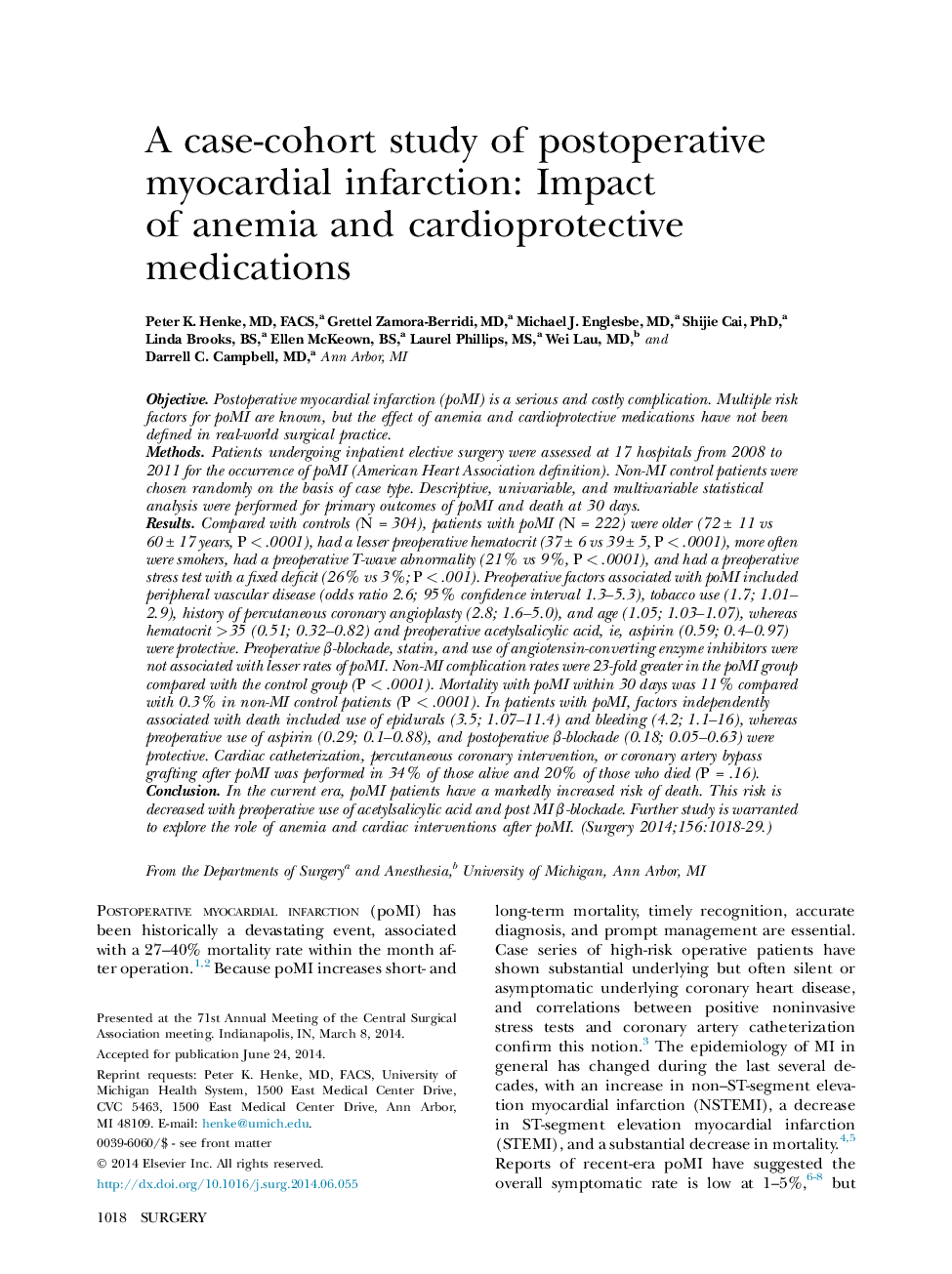| Article ID | Journal | Published Year | Pages | File Type |
|---|---|---|---|---|
| 4307667 | Surgery | 2014 | 12 Pages |
ObjectivePostoperative myocardial infarction (poMI) is a serious and costly complication. Multiple risk factors for poMI are known, but the effect of anemia and cardioprotective medications have not been defined in real-world surgical practice.MethodsPatients undergoing inpatient elective surgery were assessed at 17 hospitals from 2008 to 2011 for the occurrence of poMI (American Heart Association definition). Non-MI control patients were chosen randomly on the basis of case type. Descriptive, univariable, and multivariable statistical analysis were performed for primary outcomes of poMI and death at 30 days.ResultsCompared with controls (N = 304), patients with poMI (N = 222) were older (72 ± 11 vs 60 ± 17 years, P < .0001), had a lesser preoperative hematocrit (37 ± 6 vs 39 ± 5, P < .0001), more often were smokers, had a preoperative T-wave abnormality (21% vs 9%, P < .0001), and had a preoperative stress test with a fixed deficit (26% vs 3%; P < .001). Preoperative factors associated with poMI included peripheral vascular disease (odds ratio 2.6; 95% confidence interval 1.3–5.3), tobacco use (1.7; 1.01–2.9), history of percutaneous coronary angioplasty (2.8; 1.6–5.0), and age (1.05; 1.03–1.07), whereas hematocrit >35 (0.51; 0.32–0.82) and preoperative acetylsalicylic acid, ie, aspirin (0.59; 0.4–0.97) were protective. Preoperative β-blockade, statin, and use of angiotensin-converting enzyme inhibitors were not associated with lesser rates of poMI. Non-MI complication rates were 23-fold greater in the poMI group compared with the control group (P < .0001). Mortality with poMI within 30 days was 11% compared with 0.3% in non-MI control patients (P < .0001). In patients with poMI, factors independently associated with death included use of epidurals (3.5; 1.07–11.4) and bleeding (4.2; 1.1–16), whereas preoperative use of aspirin (0.29; 0.1–0.88), and postoperative β-blockade (0.18; 0.05–0.63) were protective. Cardiac catheterization, percutaneous coronary intervention, or coronary artery bypass grafting after poMI was performed in 34% of those alive and 20% of those who died (P = .16).ConclusionIn the current era, poMI patients have a markedly increased risk of death. This risk is decreased with preoperative use of acetylsalicylic acid and post MI β-blockade. Further study is warranted to explore the role of anemia and cardiac interventions after poMI.
